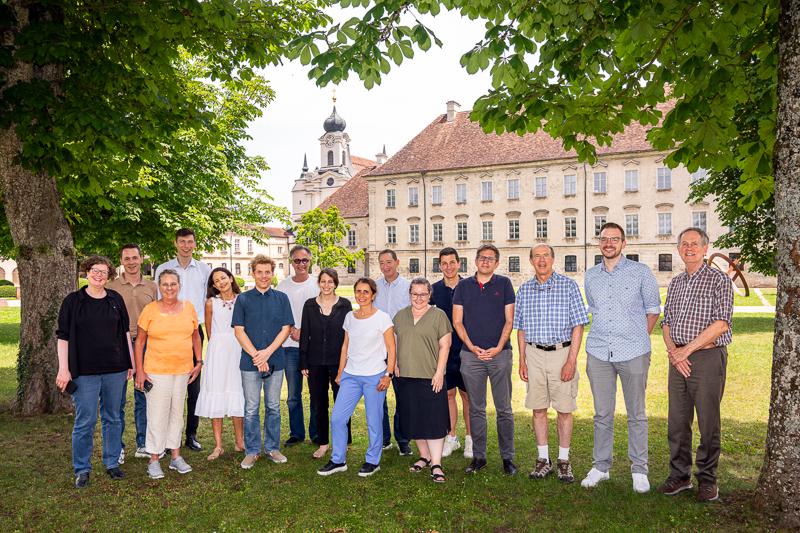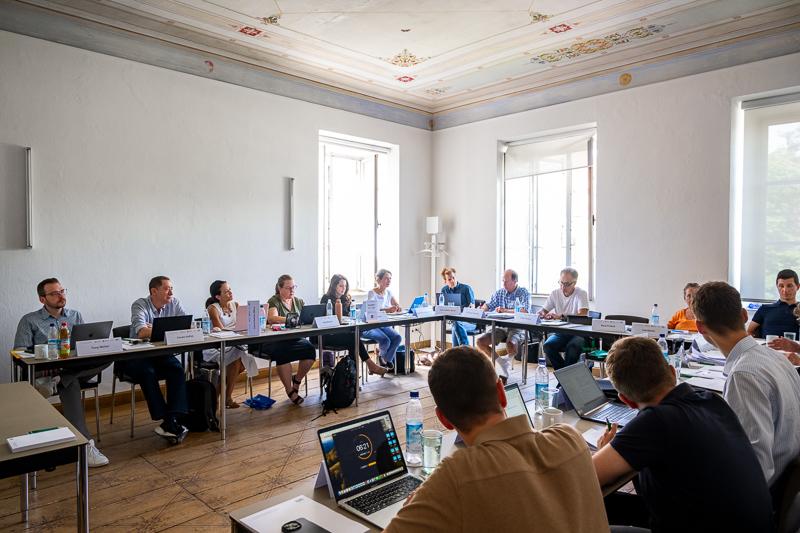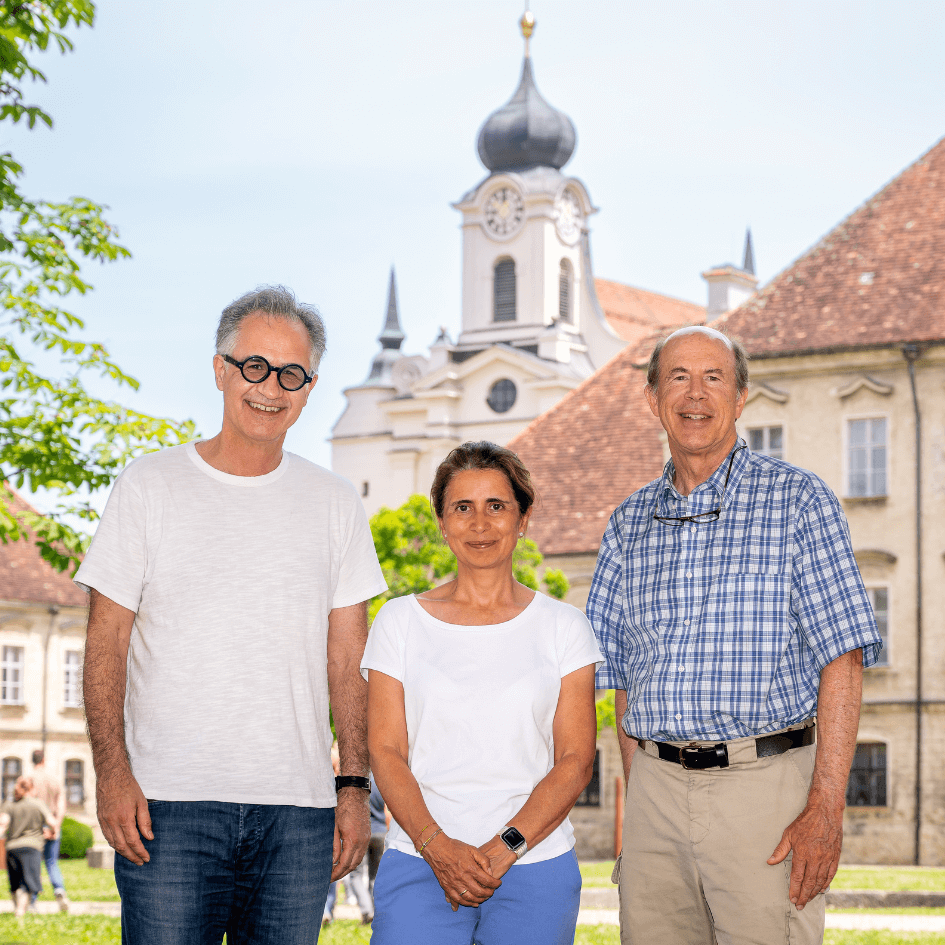In a setting as rich in history as in academic fervor, the Chair of European and Global Governance at the Technical University of Munich (TUM) recently hosted the second part of the insightful workshop series titled “The Evolution of International Regime Complexes: Exogenous and Endogenous Transformation.” This prestigious event, organized by TUM’s
Chair of European and Global Governance in collaboration with
American University and
Temple University, gathered prominent scholars from around the globe to explore the intricate dynamics of international regime complexes. The venue for this scholarly gathering was the
TUM Science & Study Center Raitenhaslach, a former Cistercian monastery that has been meticulously restored to become a center of academic excellence. Nestled along the tranquil river Salzach in the Bavarian landscape, the center provided an inspiring backdrop for deep academic discussions. This historical site, with its late-baroque prelate’s wing, created an atmosphere that encouraged both reflection and rigorous debate. Following the success of the first part held in December 2023, the workshop aimed to delve deeper into understanding how and why international regime complexes evolve, change, and persist over time. The discussions focused on both exogenous factors, such as state preferences and power shifts, and endogenous factors, arising from the operation and political reactions within the complexes themselves. Scholars employed a variety of methodological approaches, including regime complexity, organizational ecology, historical institutionalism, and delegation, to analyze these transformations. Throughout the workshop, participants presented a wide array of research papers that spanned diverse topics. These included the evolution of the international regime complex for multilateral development finance, the role of regime complexes in international protection, and the development of the global financial stability complex. Further presentations examined regional international organizations, the emergence of the AI regime complex, and the effects of domestic fragmentation on regime complexes, with a specific focus on China and sovereign debt restructuring. Other significant discussions covered sequences of binding and non-binding agreements in outer space governance, aid transparency in international development finance, and accountability within the World Bank complex. The workshop also addressed hierarchy and differentiation in disaster relief, the lasting impact of the Trump administration on international trade, and the management of ungoverned solar geoengineering within the climate change regime complex. The workshop saw participation from scholars affiliated with a diverse range of prestigious institutions, including the University of Glasgow, European University Institute, Temple University, Stockholm University, University of Miami, The Hebrew University of Jerusalem, American University, Carleton University, University of Michigan, University of Wisconsin–Madison, Université Laval, Free University of Berlin, Oxford University, and the University of Texas at Austin. This diversity of perspectives enriched the discussions and fostered a collaborative atmosphere conducive to groundbreaking research. In their concluding remarks, the organizers expressed their intention to publish the workshop’s findings in a special issue of a high-ranking academic journal. This publication aims to further the understanding of international relations and regime complexity, marking the workshop’s significant contribution to the field. The TUM Science & Study Center Raitenhaslach, with its blend of historical charm and state-of-the-art academic facilities, proved to be the perfect venue for such a high-level academic event. The workshop not only built upon the discussions from the previous session but also laid the groundwork for future research and collaboration in the study of international regime complexes. The Chair of European and Global Governance sponsored the workshop.


